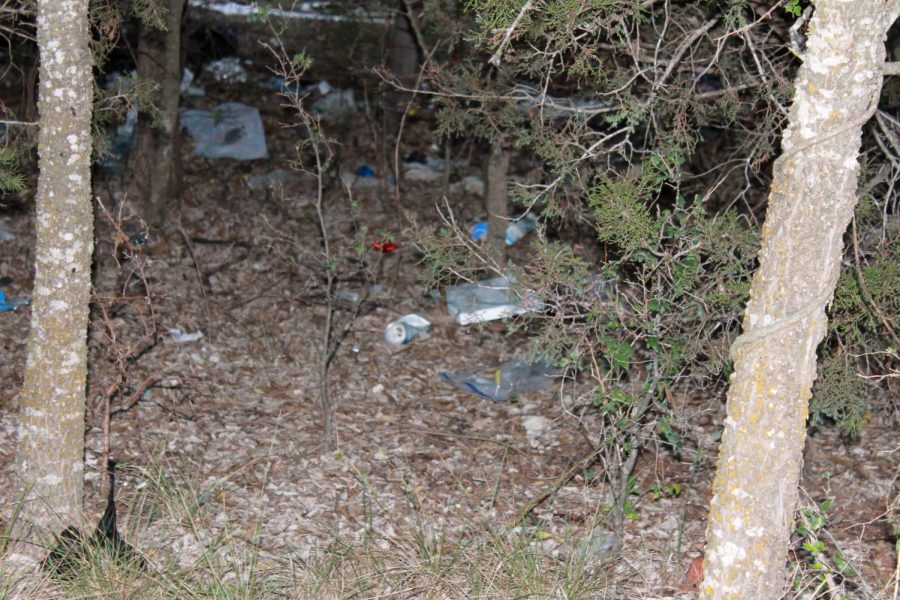Badgers Can Prevent Ocean Pollution
Litter lies on the ground by a country road outside Lampasas. The trash that ends up on the ground here effects the entire environment, including the oceans.
September 2, 2022
Over time the oceans have begun to fill up with plastic. This leads to numerous short and long term effects that are detrimental to the environment. It is estimated that by 2050, the number of plastics in oceans will outweigh the number of fish.
For the safety of the planet, Badgers should do what they can to further prevent ocean pollution. Over time it is getting worse, causing mass amounts of harm to the ocean which affects the entirety of the human race.
Ocean pollution damages health. Over time, plastic begins to break down into micro fibers. The microplastics enter fish and people eat those fish. When humans get microplastics into their system it leads to health problems including hormonal and reproductive issues. The same toxins that are found in the food are toxins proved to link to cancers, birth defects, immune system and child development issues. Even if people did not eat fish, they would still get the harmful toxins in their systems. BPA (a type of plastic) breaks down and enters the human body in multiple ways, including drinking water.
Pollutants in the ocean lead to problems for those who economically depend on the ocean. Majority of tropical areas have tourism as their main source of income. From tour guides to souvenir shops, places like these are at great risk of losing business due to the amount of pollution in the ocean. When plastics start overcrowding beaches people no longer want to go there. Due to Covid-19, tourism in Hawaii practically shut down. During this time, Hawaii had one of the highest unemployment rates in the United States. If ocean pollution continues and begins to pollute vacation areas, millions will become unemployed.
Coral reefs are extremely important ecosystems to a countless amount of organisms. Healthy coral reefs are able to support fisheries, tourism and restaurants. When coral reefs come into contact with plastics, the likelihood of disease goes from 4%to 89%. Plastics damage coral reefs by creating new openings that can get infected. Luckily, there are little changes Badgers can make that will help resolve this issue. Things like refusing plastic when possible, supporting environmentally friendly businesses, recycling and replacing plastic household items, such as a toothbrush, with environmentally friendly alternatives will help Badgers create a healthier planet.
Ocean pollution has gotten so horrible, an estimated 5.25 trillion pieces of plastic waste are in oceans. If Badgers do their part in keeping oceans safe that number will go down.

